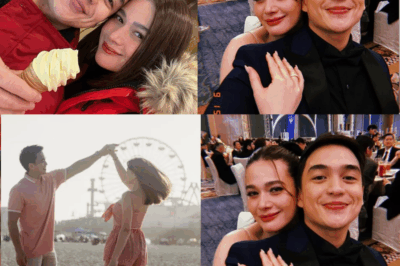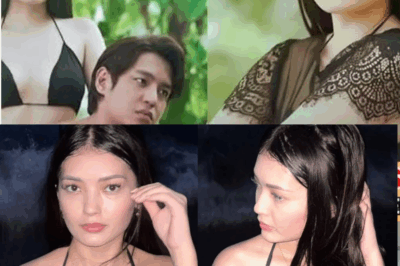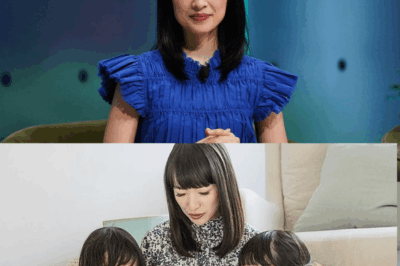When the name Darryl Yap pops up in the headlines, it’s rarely without controversy. Known for his bold storytelling and unapologetic style, the filmmaker has once again found himself at the center of a storm—this time facing cyberlibel charges filed by none other than Vic Sotto, a beloved veteran actor and television host.
On June 3, 2025, Yap entered a “not guilty” plea at the Muntinlupa Regional Trial Court, signaling that this battle is far from over. The case revolves around the teaser for Yap’s film The Rapists of Pepsi Paloma (TROPP), which Vic Sotto claims defamed him by implying his involvement in a decades-old rape case. This accusation struck a chord across the nation, stirring heated debates about artistic freedom, defamation, and the line between fact and fiction.
To understand the gravity of this case, one must look back at the controversy ignited by the teaser released at the dawn of 2025. In the short clip, characters portrayed by Gina Alajar and Rhed Bustamente discussed the alleged rape of Pepsi Paloma, with the dialogue suggesting complicity by figures reminiscent of Sotto. The implications were clear and immediate. Vic Sotto, who has long denied any involvement, responded swiftly with legal action, framing the issue as more than just a film controversy—it was an attack on his reputation and legacy.
.jpg)
Yap’s legal team, led by Atty. Raymond Fortun, asserted that their client’s “not guilty” plea is a stand for freedom of expression and artistic license. Fortun highlighted that a mandatory mediation conference is scheduled ahead of the first hearing on August 19, 2025, which could pave the way for an amicable settlement. Yet, Vic Sotto’s lawyer, Atty. Enrique Dela Cruz, indicated that his client is determined to take the matter to trial, underscoring the seriousness with which the case is being pursued.
The charges against Yap stem from Articles 353 and 355 of the Revised Penal Code, tied with provisions under the Cybercrime Prevention Act of 2012. Cyberlibel in the Philippines carries hefty penalties and reflects the government’s increasing focus on online reputation and defamation. For a filmmaker like Yap, this legal battle represents more than just a personal trial—it’s a test of how far creative expression can push boundaries without crossing into unlawful defamation.
Public reaction to the case has been polarized. Fans of Darryl Yap argue that his work aims to spotlight dark and uncomfortable truths, pushing conversations around sensitive historical issues. Critics, however, warn that the film’s approach risks muddying facts and unfairly implicating individuals without conclusive evidence.
Vic Sotto’s choice to pursue legal action rather than settle quietly reveals the stakes involved. For a figure who has built decades of trust and goodwill with the Filipino public, a cyberlibel case is not just about clearing his name but also preserving his lifelong reputation. The trial’s outcome could set a precedent affecting not only the entertainment industry but also how public figures engage with criticism and historical narratives in media.

The looming mediation scheduled for August offers a glimmer of hope that both parties might find common ground without enduring a protracted court battle. But with emotions running high and principles at stake, reconciliation seems challenging.
As the nation watches this courtroom drama unfold, many ask: will this case reshape the limits of artistic freedom in the Philippines? Will it caution filmmakers and creators to tread carefully when handling sensitive real-life stories? Or will it embolden others to stand their ground, knowing that the law can be wielded as a shield and a sword?
Darryl Yap’s plea of “not guilty” signals that he is prepared to face these questions head-on. Regardless of the verdict, this case has already sparked an important conversation about the delicate balance between storytelling and responsibility.
In the end, this battle isn’t just about two public figures—it’s a reflection of a society wrestling with its past, its heroes, and its stories yet to be told.
News
Behind the Drama: What Really Sparked the Xian Gaza, Ivana Alawi, and Benitez Scandal?
It started with a post. Then another. Before anyone could catch their breath, the names Xian Gaza, Ivana Alawi, and…
How Not to Cancel a Wedding: Lessons from Bea and Dominic’s Split That Shocked Fans
The sudden split between Bea Alonzo and Dominic Roque sent shockwaves through their fans and the entertainment world alike. Once…
Vlogger Boy Tapang Surrenders Over VAWC Case: What Really Happened?
Just a few months ago, Boy Tapang’s name was synonymous with thrill-seeking adventures, eccentric challenges, and raw, unfiltered energy that…
Missing No More: Karen Lopez and Boyfriend Resurface, Reveal Real Reason Behind Vanishing
She was once a rising face in Vivamax films, admired for her daring roles and raw talent. But in a…
‘Spark Joy’ Creator Marie Kondo Talks Chaos, Motherhood, and New Perspective
Marie Kondo, the global icon of decluttering, has built an empire teaching people how to live with less, find joy…
K Brosas Opens Up to Fans: Reflections on 25 Years of Career and Surprises
K Brosas, a beloved figure in the Philippine entertainment industry, has spent 25 years captivating audiences with her wit, humor,…
End of content
No more pages to load












